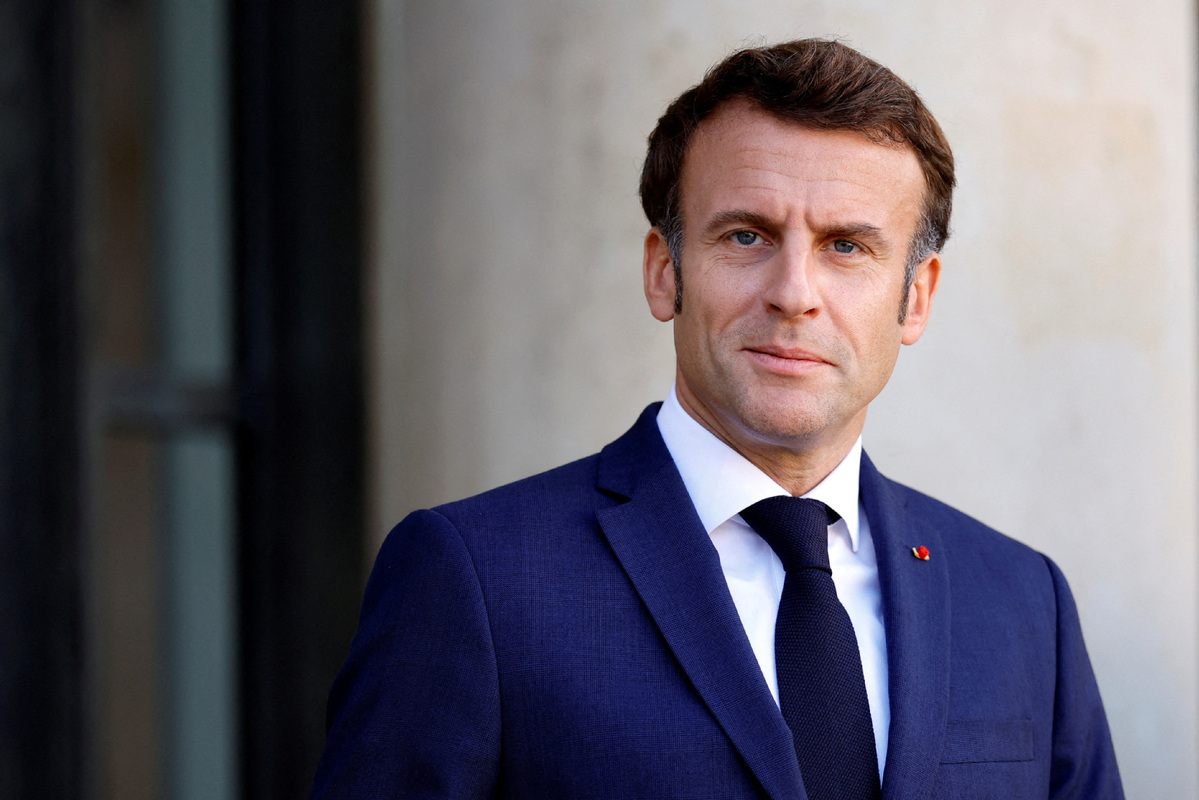Macron's new Europe club searches for identity
By ANGUS MCNEICE in London | China Daily Global | Updated: 2022-11-03 10:38

When French President Emmanuel Macron first proposed the establishment of the European Political Community in May, the overarching question among critics was: Why?
A Europe-wide intergovernmental organization, the EPC held its inaugural summit on Oct 6, at which 44 leaders from across the continent gathered in Prague to discuss policy and promote cooperation and security.
Urgent agenda items included the Russia-Ukraine conflict, economic instability and the energy crisis. But the organization itself has no legislative power or centralized funding mechanism, prompting detractors to ask if the meeting would offer anything more than political lip service.
Then, last week, the first practical outcome of the summit played out, when European Union monitoring experts began patrols of the Armenian-Azerbaijani border, where forces continue to clash over a territorial dispute.
Armenia and Azerbaijan are not part of the EU, and leaders from both nations agreed to the patrols during the Oct 6 summit. For the next two months the experts will monitor the situation on the border, in order to "build confidence and to contribute to the border commissions", the EU said in a statement.
If nothing else, proponents of the EPC can claim the Prague meeting served as a notable breakthrough in Armenia-Azerbaijan relations.
But the overriding mission of the organization remains unclear. Is it equivalent to a waiting room for potential EU members, and if so is it designed to accelerate or delay accession? Or is the EPC an example of EU overreach, allowing the bloc to exert its power into regions of the continent that have expressed little interest in, or stand no chance of, attaining membership?
Writing for the Polish think tank Res Publica, international relations expert Nicasia Picciano described the EPC as an "informal organization with neither a structure nor resources of its own. It does not have a secretariat, flag or logo".
"Yet being a member of the EPC might represent those countries wishing to join the EU to take advantage of some benefits of membership before the whole application process is completed," Picciano said.
Along with representatives from the 27 EU member states, the inaugural EPC was joined by leaders from Balkan countries including Albania, Bosnia and Herzegovina, Montenegro, North Macedonia and Serbia. Nations in the Caucasus Region, including Armenia, Azerbaijan and Georgia took part, as did Norway, Iceland and Liechtenstein, which are part of the European Economic Area but remain outside the union.
The United Kingdom, which recently left the EU, joined the summit, along with Switzerland, Ukraine and Turkiye, whose negotiations to join the union have ground to a standstill. Ukraine applied for EU membership in February this year during the conflict with Russia, which is thought to have played a role in Macron's push to form the EPC this year.
"This new European organization would allow democratic European nations that subscribe to our shared core values to find a new space for political and security cooperation," the French leader said in May.
But Marc Pierini, a senior fellow at the policy institute Carnegie Europe, said that the EPC stands little chance of acting as a continentwide security forum.
"On the one hand, some participating countries are keen to maintain their close relations with Moscow," Pierini said. "On the other hand, no continental discussion of collective security can take place in the absence of the United States and NATO. Let alone the obvious fact that resuming a security discussion with Russia is unconceivable under current circumstances. This exercise will have to wait for a different day and age."
Many questioned if the UK would accept the invitation to join the summit, after EU relations soured during the Brexit period. Former prime minister Liz Truss also raised eyebrows during a Conservative Party leadership campaign event in August, when she said the "jury is still out" on whether Macron was a "friend or a foe" of the UK.
In the end, Truss attended the summit, and called Macron a "friend", though provided the caveat that her presence was "not about moving closer to Europe".
Pierini said that the UK taking part was one of the most notable outcomes of the summit.
"Prague witnessed a modest return of the United Kingdom to a continental forum, thereby eliminating the vexing feelings of post-Brexit alienation from Europe-wide geopolitical discussions," Pierni said.
Truss has since been succeeded as prime minister of the UK by Rishi Sunak, who himself supported the exit from the EU but is generally considered more moderate than Truss.
Evie Aspinall, a senior researcher at the British Foreign Policy Group, said that Sunak's appointment has been met with a "sigh of relief" by the majority of the EU establishment, who view Sunak as a "more steady pair of hands than his predecessors".
"Despite being part of (former prime minister Boris) Johnson's Eurosceptic government, and himself being a Brexiteer, he was seen in the EU as a moderating force for Johnson's approach to the EU," Aspinall said. With the ongoing conflict in Ukraine and much of Europe also facing pressing economic challenges, "Sunak's appointment comes at a time where there is likely to be appetite within the EU for a reset of relations", she said.
Aspinall said that the EPC may provide a "helpful context for engagement" between the UK and EU members. The UK is scheduled to host the fourth EPC summit, with Moldova and Spain each holding a meeting next year.
























